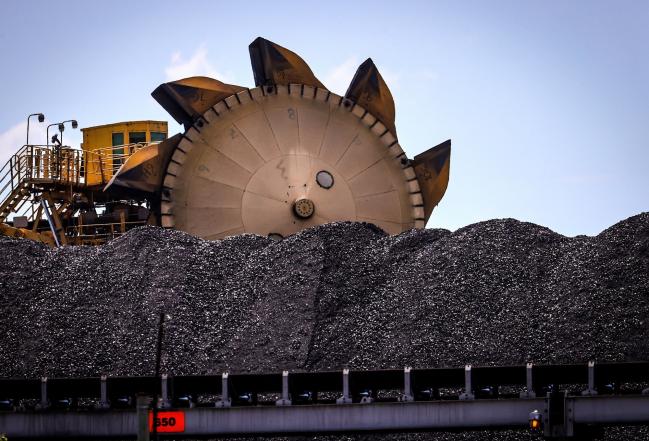(Bloomberg) -- Australian exporters are on high alert on Friday as the deadline arrives for traders in China, its biggest market, to stop buying at least seven categories of the country’s commodities.
China’s government has ordered a halt to imports of products including coal, barley, copper ore and concentrate, sugar, timber, wine and lobster, people familiar with the situation said earlier this week. The government has ordered the halt to begin on Friday, one of the people said, asking not to be identified as the information is sensitive.
China Turns to Lobsters, Wine and Coal to ‘Punish’ Australia
The industries mentioned as targets of trade action by China represented about 7% of Australia’s total goods exports, or A$27.15 billion ($19.7 billion), in 2019-20, Commonwealth Bank Economics said Friday in emailed comments.
China’s blacklist -- delivered verbally to commodities traders -- doesn’t cover materials like iron ore or natural gas, where import curbs could unduly damage China’s own economy.
Australian Trade Minister Simon Birmingham said the ongoing reports of restrictions on Australian industry are inconsistent with China’s claims that no such discriminatory actions are in place.
“We hope that the Chinese government is true to its word and that these issues can be resolved, but there’s no denying the fact that the range and extent of concerns that industry are hearing is deeply troubling,” he said on radio station 5AA.
The order represents a dramatic deterioration in ties, which have been strained since Australia barred Huawei Technologies Co. from building its 5G network in 2018 on national security grounds. Relations have been in free fall since Prime Minister Scott Morrison’s government in April called for an independent probe into the origins of the coronavirus.
China has already barred meat imports from several Australian meatworks, delayed lobster shipments from clearing customs, applied tariffs of more than 80% to barley, and said it won’t allow timber from Queensland state because of pests. Wine is also under an anti-dumping investigation while Chinese power stations and steel mills have been told to stop using Australian coal. Cotton purchases have also been suspended.
Australia is working through the issues “commodity by commodity” and will continue to work collaboratively with officials in Beijing, agriculture minister David Littleproud said Friday on radio station 4BC.
“We are a rules-based global trading partner, and we expect those that we trade with, in fact, to stick to those rules as well,” he said.
©2020 Bloomberg L.P.

